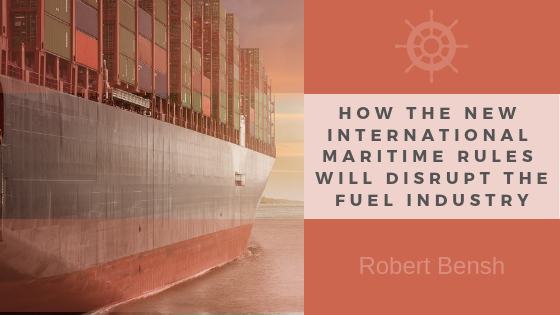Are you thinking about traveling during the first half of 2020? You might want to think again!
On January 1st, 2020 the United Nations International Maritime Organization will begin enforcing regulations meant to help reduce sulfur emissions from ocean freighters and other ships. For the industry to comply, ships will need to reduce the percentage of sulfur in their fuel from 3.5 percent to no more than 0.5 percent.
The reduction will transition ships from very heavy, sludge-like oil with minimal refining to fuel that is perhaps most similar to that currently used by semi trucks and airplanes. Fuel prices across the globe are expected to spike as much as 20% as a result.
The shipping industry is responsible for the consumption of three million barrels of the heavy fuel per day. Refineries and transporters will likely struggle to keep up with such a high demand, which does not bode well for other refinery customers. Experts predict that the change could impact everything from the price of your airline ticket to the cost of mailing a package. Some even warn of potential fuel shortages.
Fortunately, not every ship will need to switch to the new fuel. Newer ships can purchase a scrubber that helps minimize the sulfur emissions coming from the current fuel. The apparatus costs several million dollars, which is more than the potential remaining value of many older ocean vessels. Companies that cannot afford such a high price tag and companies using ships that are well-aged are unlikely to purchase the scrubber, choosing instead to switch fuels.
Enforcement of the new rule involves the cooperation of over 170 countries. Participating countries will “police visiting vessels,” and any ships found to be in violation of the law will be impounded. Because the deadline is absolute, and enforcement is widespread, we can expect to see an impact on the fuel industry as early as late 2019.
As large vessels begin preparing for extended journeys at the end of this year, they will likely choose to fill up with emission-compliant fuel rather than risk stiff penalties or impoundment. Demand for the refined fuel will go up, but it’s hard to say how far behind pricing will be as it drastically depends on oil prices at the time.
The “middle class of distillates” will see more competition as an entire industry enters the demand equation. As demand increases, fuel pricing in this class will rise which will then directly impact the industries and businesses that use diesel fuels. The burden of increased cost will most likely be shared with the consumer.

